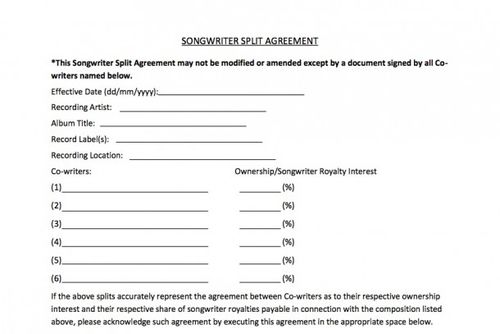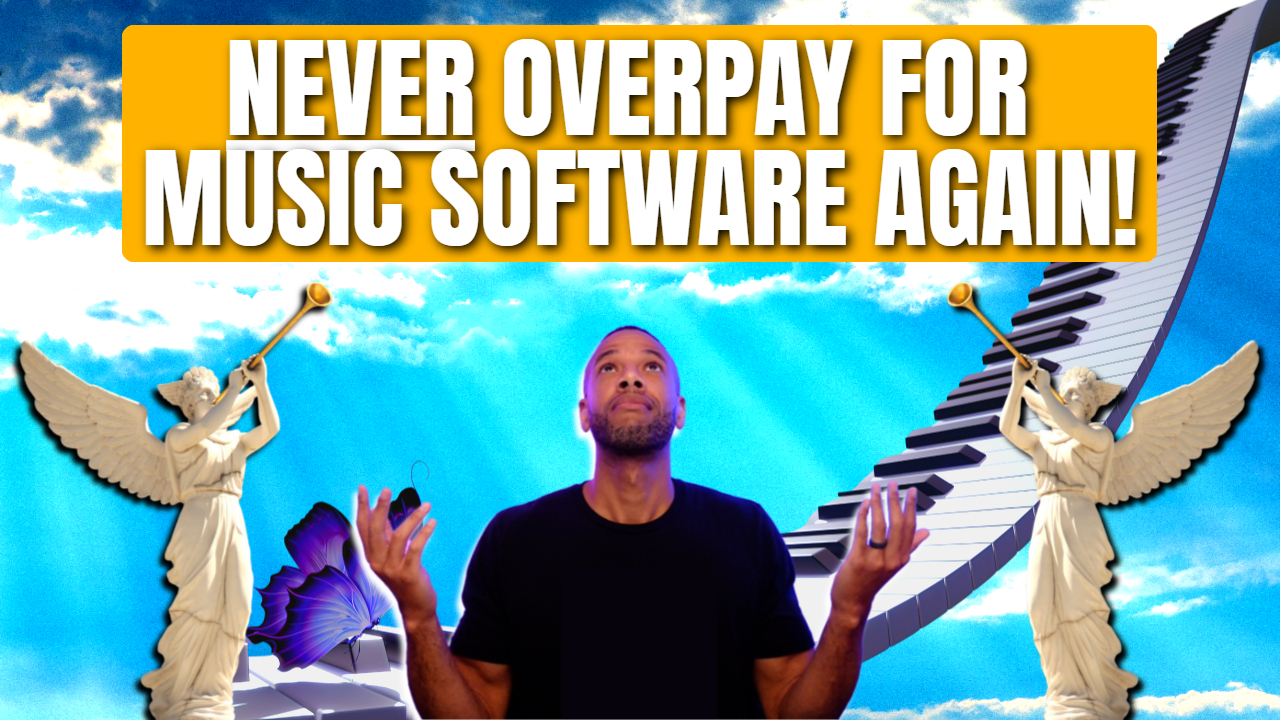Do You Own Your Music? Songwriter & Producer Split Sheets For Dummies

*This article may contain links to affiliate products & services. We have reviewed these services to try and ensure the highest quality recommendations*
Written by Jaron Lewis
No one in the music industry will tell you that the “business” side of things is the fun part. Any musician passionate about their craft is far more interested in the creative process of producing music than going through all the technicalities of the ownership of their work. But no matter how talented the band or how brilliant the songwriting, it is still a job, and making it a habit to go through the business technicalities each time a song is written will help save a lot of strife later on – trust us.
Simply put, a split sheet is a legal document that lays out who owns what percentage of a song. Once the money starts flowing, this becomes especially important. So before your next songwriting session, check out these tips about split sheets:
Do It Beforehand
Will it be an overly-fun experience? No. But sit down prior to songwriting and have a meeting about split sheets, and get everything out in the open. Fortunately, if your bandmates and/or producer have been in the music industry long enough, all will recognize that the protection of everyone’s best interests is actually a good idea. It’s too hard to remember after studio time who wrote what, and money complicates things even more, so just do it prior.
It Won’t Kill The Vibe
Too many artists skip the split sheet with the excuse that it suffocates their creative process. The short answer is that you’ve got to move past it. In an industry notorious for being risky, including a safety net like this is only going to help everyone involved. As mentioned, while music is art, you’re also trying to make it a career. Paperwork is a necessary evil.
What’s On It?
This document should contain some variation of the following: everyone’s names and addresses, titles (producer/writer), percentages, the PRO (Performing Rights Organization) of those involved, SSN or EIN for IRS reasons, and all signatures.

How’s It Split?
The songwriter and producer splits are actually pretty simple. Both have their own 100 percent pie. You don’t have to divide the pie evenly, but it tends to work most smoothly. For instance, if there are two songwriters and one producer, the songwriters each get 50% of their pie, and the producer gets all 100% of theirs.
What’s ASCAP?
ASCAP is the American Society of Composers, Authors, and Publishers. They’re a PRO who collect royalties on behalf of their members, i.e. they keep track of which businesses play your song and ask them for money for you. Doing as ASCAP split sheet and registering your song with them is a great way to reap the benefits of your work.
What To Do With Your Split Sheet
Once everything’s filled out, a physical copy goes out to all involved before submitting your song to ASCAP or other PROs. Typically, one person is in charge of this process, and is supposed to keep everyone in the loop with which PROs the song is being registered with.
When your song is ready to go, it's time to start promoting it to potential fans! Omari has the best organic promotion services money can buy. With packages for Spotify, TikTok, Instagram, and YouTube, we will get your music the traffic and attention it deserves! Click below for more information.
SPEAK YOUR MIND
How This INDIE Artist Got Over 67,598,275 Streams On ONE Song
Join the No-Nonsense Music Marketing Newsletter to get the most valuable weekly case studies and strategies to grow your music business!




